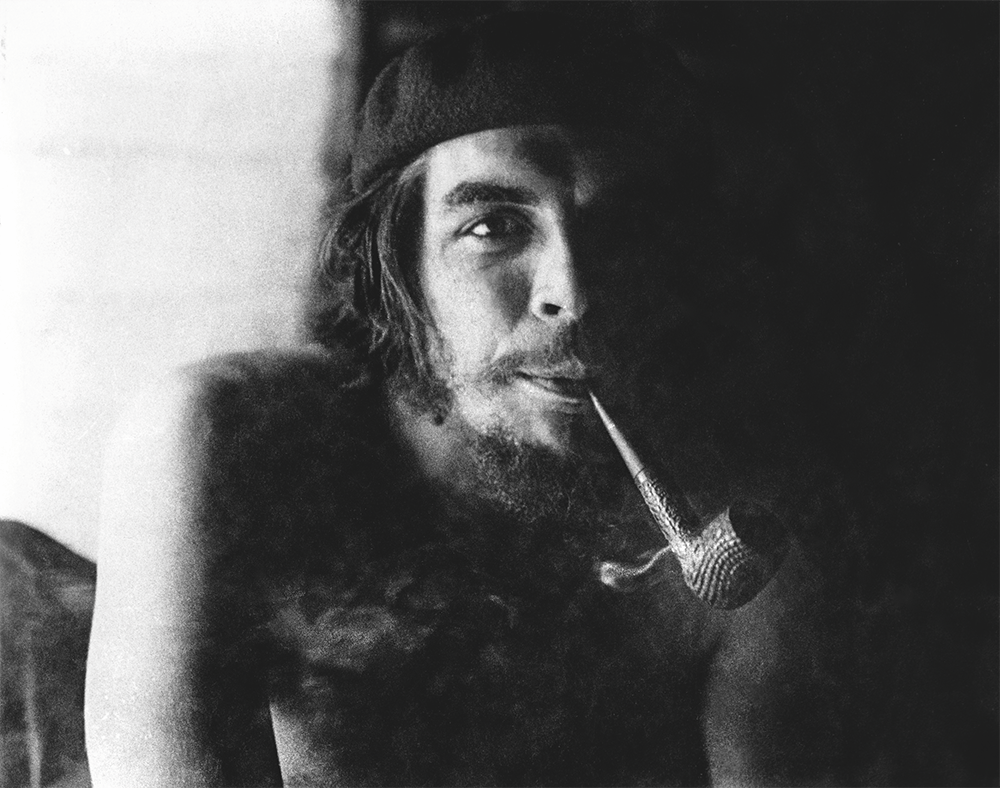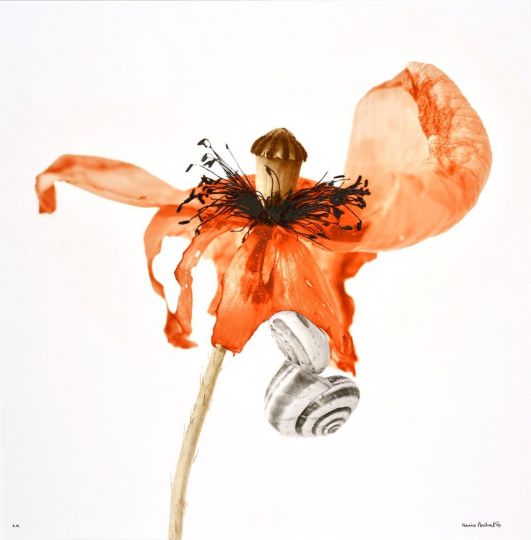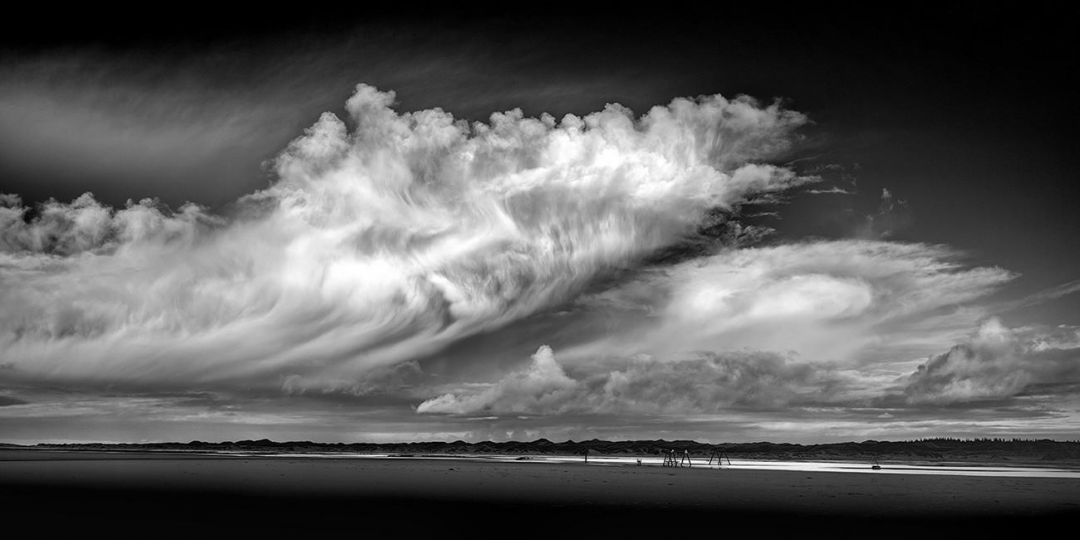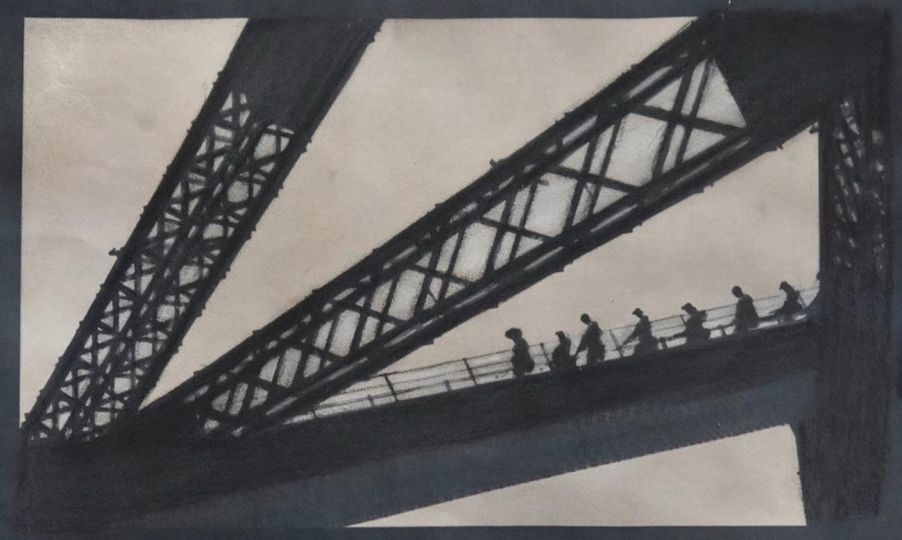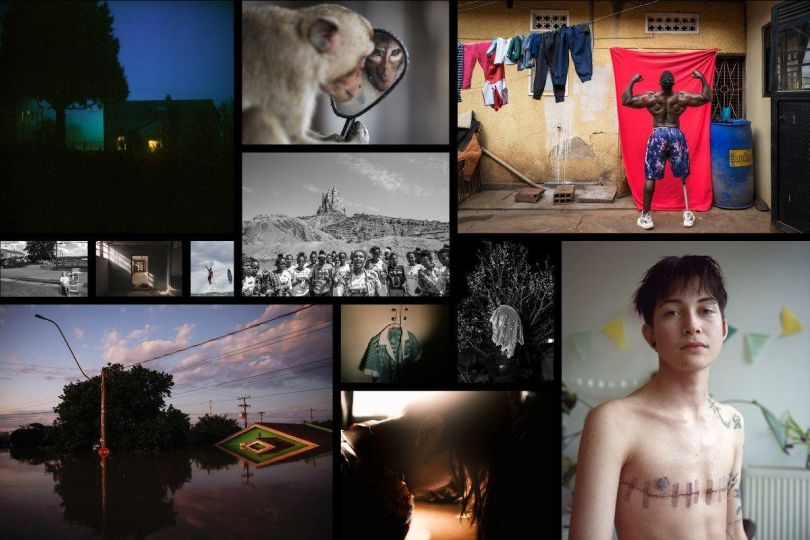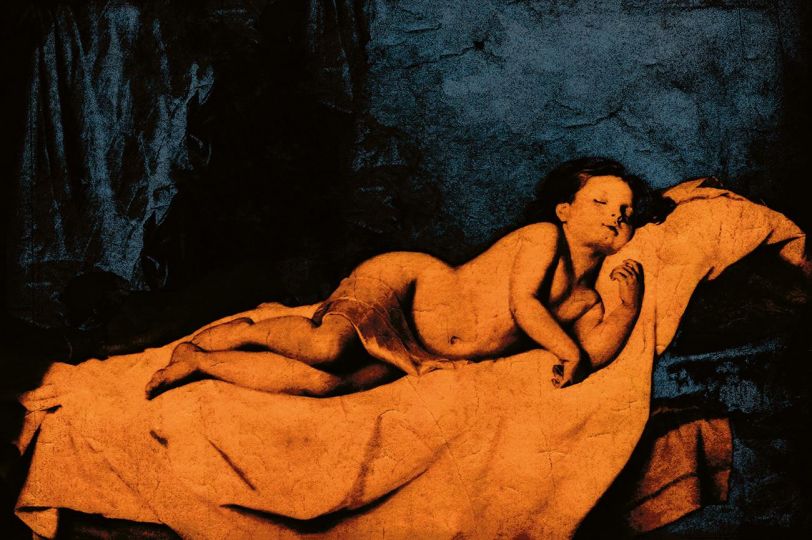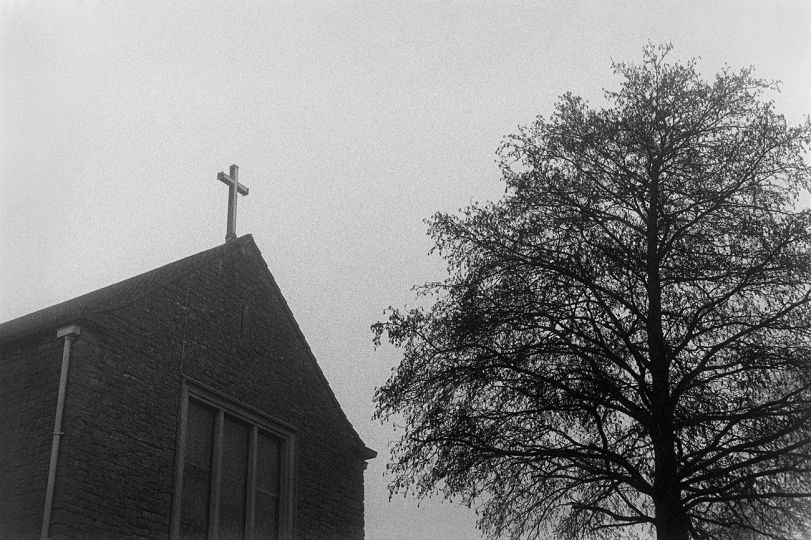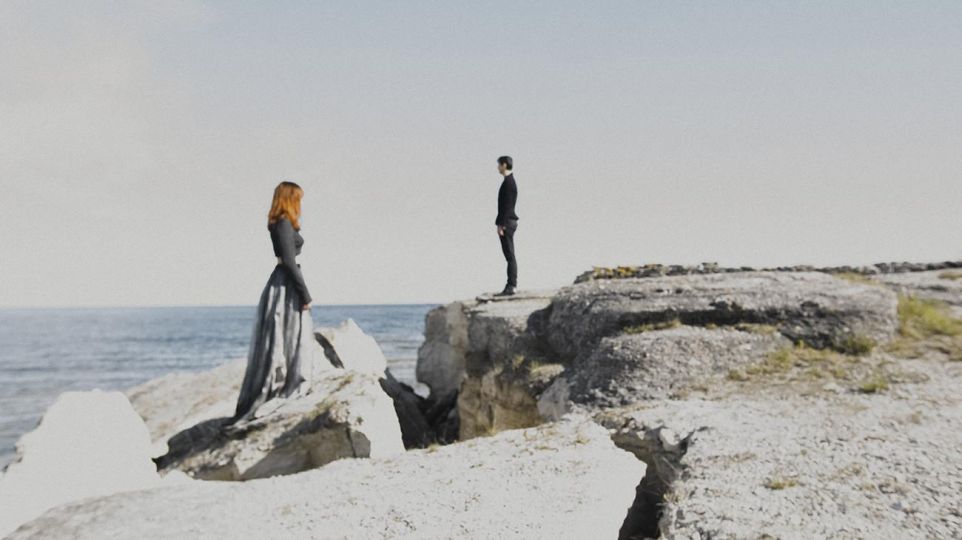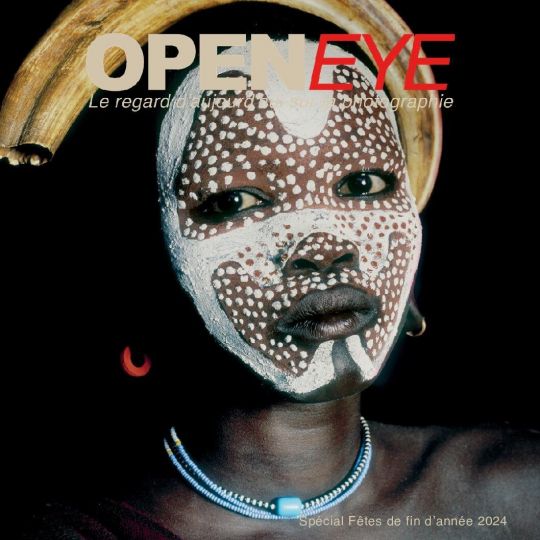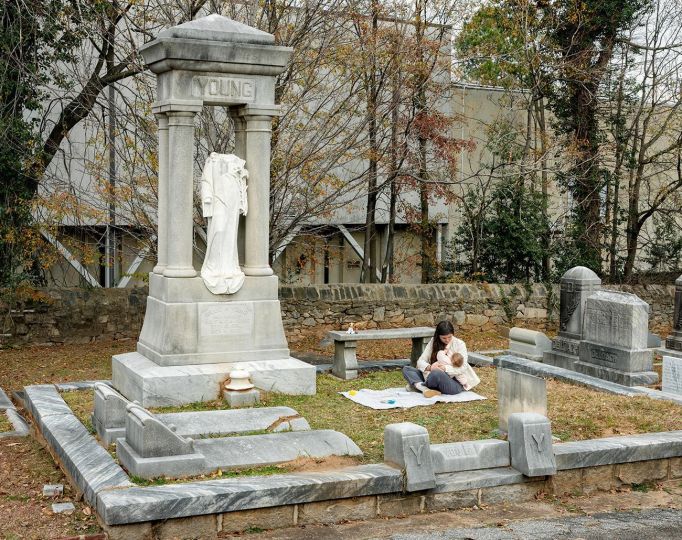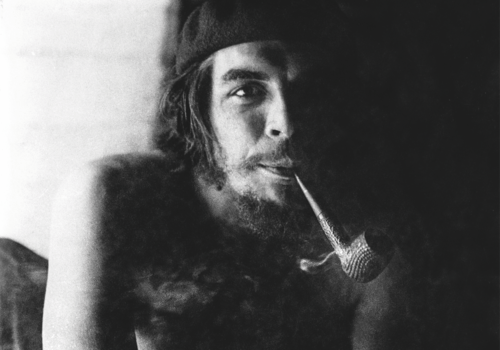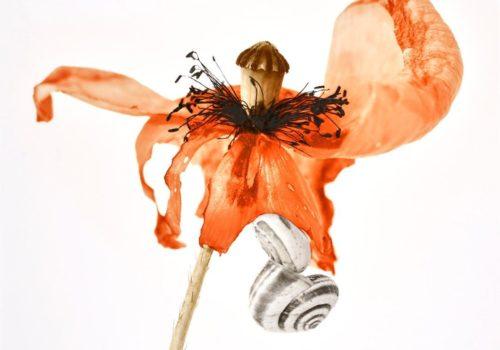In his first book about North Korea (DPRK, Thames & Hudson, 2006), Philippe Chancel has confronted photography with the vertiginous grandeur of performances staged by a totalitarian government. Everything is a matter of scale. He raises the question of how best to give an account of this survival of Communist pomp in the information-driven world of today. How can photography react to things which have been carefully and precisely organised in order to create an image?
Flashy despotism comes across as a kind of harmless chromo. But is it permissible to enjoy the beauty of the images, knowing full well that the decor conceals the suffering of a people? Is it possible for the photographer to impose the sensitivity and lucidity of his eye?
Philippe Chancel raises the question of the ethics of an image, not one taken from the news and the media, but right from its creation. He responds to the simulacrum by using an epic style whose aim is to work against the ‘aestheticisation’ of power. How should one react to the sense of awe that the Korean spectacle is designed to provoke? It was probably the contradictory nature of the situation that drove Philippe Chancel to a change of scale, so that he got closer to the ‘people’, staying within the decor but interrogating their bodies as a way of examining the expression of happiness promised by the giant scenographies of Kim Jong-un. When Philippe Chancel started looking at people with a camera, he stopped being a mere observer and entered into conversation with the Korean people. From then on the photographic protocol interacted with the political order. ‘Smile please’, is the traditional instruction and it is a reflex for people who agree to pose for a photograph. What becomes of this happy pantomime, this almost universal code, in the ‘Brave New World’?
The dictator promises his people happiness, not wealth and profit, not liberty and equality as in democratic regimes, but happiness as an absolute value. How can that be stage-managed? Although the decor might be impressive, it is more difficult to stir people’s emotions and, above all to make people’s faces reflect an affective state that shows how happy they are. What situations and private events can suggest that happiness is everywhere? Philippe Chancel became interested in this codification, this empire of signs of Korean happiness. And the photographs that he gives us are profoundly disturbing. This is not the photography of criticism, seeking to ridicule Korean happiness. He has gone in search of affective states of the most prescriptive kind: smiles, seduction protocols, expressions of organised satisfaction, reverence for family and hierarchical values. Photographically, Chancel composes pictures in which the people pose, but with that particular characteristic that the pose, that is to say the posture, in the psychological sense of the word (self-discipline), is profoundly rooted in their being. Happiness is not an act; it is experienced as an injunction. The faces show either profound detachment, or an implacable smile, but you will only rarely see somebody looking absorbed – tantamount to a sign of doubt and thought. Except occasionally. In the slim figure of a pensive man walking, whose counterpart, on the opposite page, is the gesture of a guard signalling an order to stop. Or in the first picture of the book, which is of a strange pair of almost identical women; the first with a smile on her face, while the second is pouting – like the twin expression of two states of mind in one person, one public, the other private.
Fashioned as we are by Western values, we take pleasure in observing, ironically and delightedly, the simulacra of Korean happiness. But who are we to judge their happiness? The great strength of this album is that it sows doubt in our mind. These couples, these families, these men and women presented in the intimacy of their private life are surely very like us. The expressions on their faces make us think of our own questionings about what we want to do with our lives. The book contains cracks through which we catch glimpses of scenes and details that give the impression that North Koreans have a gift for inventing moments of happiness in spite of everything. Scenes from everyday life, shared moments, a break in the protocol: it is these scenes and these smiles that make us doubt. The happiness is not actual joy but it is the sign of it. Signs, like those which all the people in the book convey to the photographer, are a link with the spectator.
Philippe Chancel contrasts the humanity of this exchange with the power of the totalitarian folklore. It is the strength of photography pitted against the soothing imagery of a kind of bliss with no hope of transcendence. The happiness promised by Kim Jong-un is a fable which is unmasked by a simple appeal to the spectator – like the hands of two girls in traditional dress making the V-for-victory sign. The question that Philippe Chancel’s photographs raise is surely ‘What are they laughing about, these Koreans, as they make signs to us?’
Michel Poivert
Philippe Chancel
For over 25 years, Philippe Chancel’s photography has explored the complex, uncertain and fertile territory where art, documentary and journalism meet. He was introduced to photography at a very young age and he began his professional career with a series of reportages from former Eastern Bloc countries.
His work has been widely exhibited and published in prestigious international journals, both in France and abroad. He has gradually made his mark with a new approach to documentary photography.
Philippe Chancel is currently working on an extensive, world scale documentary corpus entitled Datazone, which aims to cast light on excesses and abuses in contemporary politics and society.
Michel Poivert is Professor of the History of Contemporary Art and Photography at the Sorbonne, Paris. He was president of the Societe Francaise de Photographie (1996-2010). He is on the editorial board of La Revue de l’Art and is editor of the magazine Etudes photographiques.
Michel Poivert has organized a number of exhibitions including his latest, Nadar exhibition at the Multimedia Art Museum, Moscow in March 2015.
BOOK
Kim Happiness
Photography by Philippe Chancel
Text: Michel Poivert
2015
Published in English and French
First Edition: 500 copies
Size of the book: 24.5 x 30.5 cm
112 pages – Four-colour printing
67 Photographs
Paper Pheonixmotion Xenun
Hardcover Package
http://www.lartiere.com
http://www.philippechancel.com/


